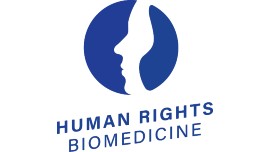Speakers
OPENING REMARKS
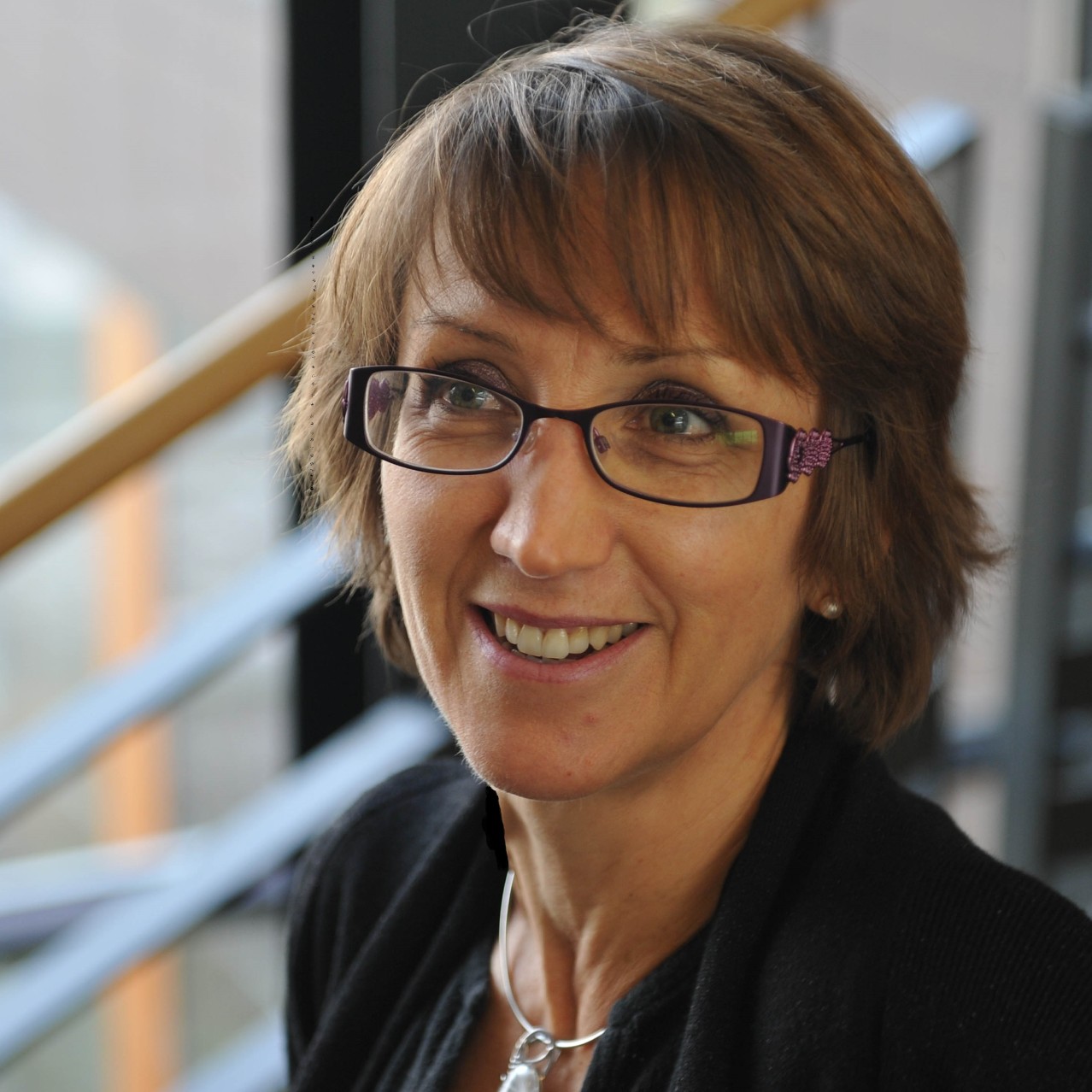
Laurence Lwoff
Head of Human Rights and Biomedicine Division, Council of Europe
Mrs Laurence LWOFF holds a MSc. in reproductive physiology from the University of Paris VI – Jussieu (France). She then obtained her degree in agronomy from the Institut National Agronomique Paris-Grignon (France) in 1986 and received her PhD in molecular biology in 1989.
She joined the Council of Europe in 1991, where she was entrusted with the responsibilities of the Secretariat of the Conventions concerning the use of animals in agriculture and science, in the Directorate of Legal Affairs. In 1999, her responsibilities were extended to biotechnology. She was the Secretary of the International Conference of the Council of Europe on Ethical Issues Arising from the Applications of Biotechnology (Oviedo, Spain, May 1999). In 2002, she joined the Bioethics Department where she has been responsible in particular for the activities on human genetics and on the protection of the human embryo and the foetus. She was the Secretary of the Group in charge of the elaboration of the Additional Protocol to the Convention on Human Rights and Biomedicine, concerning Genetic Testing for Health Purposes.
She is currently the Head of Human Rights and Biomedicine Division and Secretary of the Steering Committee for Human Rights in the fields of Biomedicine and Health (CDBIO), intergovernmental committee in charge of the activities on the protection of human rights in the biomedical field, at the Council of Europe.

Siobhan O'Sullivan
Chair of the Steering Committee for Human Rights in the fields of Biomedicine and Health (CDBIO), Council of Europe
Prof. Siobhán O' Sullivan is the Chief Bioethics Officer at the Department of Health and is responsible for drafting policy advice and legislative instruments on bioethics related issues. She is also Professor in the Royal College of Surgeons Ireland, where she teaches Healthcare Ethics and Law and is involved in curriculum development. From 2002-2010, Prof. O’Sullivan was Director of the Irish Council for Bioethics an independent, autonomous body to consider the ethical issues raised by developments in science and medicine. She is the vice-chair of the European Group on Ethics in Science & New Technologies, an independent, multidisciplinary body advising the European Commission in connection with Community legislation or policies. She is a former member of the Advisory Council for Science, Technology and Innovation, the Irish Government’s high-level advisory body on Science, Technology and Innovation (STI) policy issues. She received her Doctor of Medicine from Karolinska Institutet, Stockholm in 1998 and hold a Masters in Healthcare Ethics and law and a Masters in Human Rights Law.
WHAT IS PUBLIC DIALOGUE ON GENOMIC MEDICINE, WHY IS IT IMPORTANT, AND WHEN IS IT MOST IMPORTANT TO CARRY OUT?
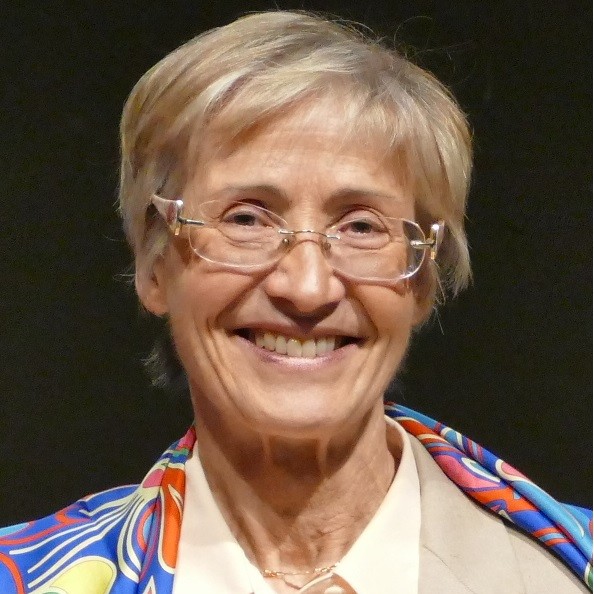
Anne Cambon-Thomsen
University of Toulouse (France)
Anne Cambon-Thomsen is a French medical doctor specialised in human immunogenetics and health ethics, now Emeritus Research Director at CNRS in an epidemiology and population health unit of Inserm and University of Toulouse and a societal platform “Ethics and biosciences”. She has a strong record of past activities in human immunogenetics research, ethics and scientific bodies, European and international projects and more recently in Open Science. She co-leads a working group on “Ethics, regulation and society” of the French plan of genomic medicine and was the first leader of the Common Service ELSI of BBMRI-ERIC, the European infrastructure on biobanking and biomolecular resources. She was member of the CCNE (French National Consultative Bioethics Committee), the European Group on Ethics in Science and New Technologies, and participated in several European projects involving the societal dimension of biotechnologies in medicine.
EXAMPLES OF PUBIC DIALOGUES - RESULTS, CONSEQUENCES, LESSONS LEARNED
Moderators : Anne Forus (Norway), Pierre Mallia (Malta)

Anne Forus
Directorate of Health (Norway)
Anne Forus is a Senior Adviser at the Norwegian Directorate of Health. She works mainly on ethical, legal and scientific /medical issues related to biomedicine and the application of biotechnology in health care and biomedical research. Her field of knowledge cover issues related to the use of genetic analyses, assisted reproduction technologies, prenatal diagnosis, pre-implantation genetic diagnosis, biobanks in research, and the use of tissues, cells and organs.
Anne has been a delegate to DH-BIO/CDBI since 2003. She was Vice Chair in 2012 and Chair in 2013 and 2014.
Anne was appointed as member of the UNESCO International Committee on Bioethics (IBC) from 2016-2023.
Anne has a PhD in molecular biology and background in cancer research. She has published a number of scientific papers in peer-review journals and a book on ethical issues related to assisted reproduction technologies.

Pierre Mallia
Professor Family Medicine & Patients' Rights, Bioethics Coordinator, Bioethics Research Platform Chairman, Faculty Research Ethics Committee (Malta)
Pierre Mallia is Professor of Family Medicine and Patients’ Rights at the University of Malta, Medical School where he runs the Bioethics Research Programme and the Medicine and Law Programme. He teaches Bioethics in the Faculties of Medicine, Science, Health Science, Dentistry, Laws, Theology and Engineering. He Chairs the Department of Health Research Ethics Committee, and, the Bioethics Consultative Committee of the Ministry of Health. He was President of the Malta College of Family Doctors for three terms and introduced the international Specialisation of the Royal College of General Practitioners of the UK. He is a member of the Committee for Bioethics of the Council of Europe and is currently a member of the European Group on Ethics in Science and New Technologies.
Derick Mitchell
Chief Executive Officer, IPPOSI – the Irish Platform for Patient Organisations, Science & Industry (Ireland)
Derick Mitchell, PhD is the Chief Executive Officer of IPPOSI – the Irish Platform for Patient Organisations, Science & Industry. IPPOSI is a patient-led organisation that works with patients, science & industry to put patients at the heart of health innovation.
Derick has a background in research, strategy and advocacy from over 12 years’ experience spanning a number of leadership roles in research and multi-stakeholder engagement in Ireland and at the EU-level. Derick believes in the power of a united voice when it comes to patient advocacy and the central role of patients and their representative organisations in healthcare and research.
Derick is an elected board member of the European Patients Academy (EUPATI) Foundation, a global initiative which is training patients to become involved in the medicines R&D process. Derick is also chairperson of the Patient Representatives Round Table (Europe) of ISPOR - the Professional Society for Health Economics, Outcomes Research. Derick also serves on the advisory boards and steering committees of a number of health-related initiatives including DataSavesLives.eu, the OECD PaRiS Survey initiative, Health Innovation Hub Ireland, the Research Ethics Committee of university College Dublin, as well as the Life & Health Sciences Committee of the Royal Irish Academy.
Derick holds a Bachelor of Science degree in Biotechnology from NUI Galway and a PhD in Molecular Medicine from University College Dublin. Outside of IPPOSI, Derick spends his free time attempting to influence his two young daughters.

Vivienne Parry
Science Broadcaster & Head of Public Engagement Genomics England (UK)
Vivienne Parry is a science writer and broadcaster. She has hosted many programmes for BBCTV and radio and has been a columnist for the Times, Guardian and News of the World. She has a degree in genetics and has had a part time role at Genomics England as Head of Public Engagement since the inception of the 100,000 Genomes Project in 2013. She has recently completed her term as a board member of UK Research & Innovation, the body responsible for the strategic spend of the UK’s £7 billion research budget.
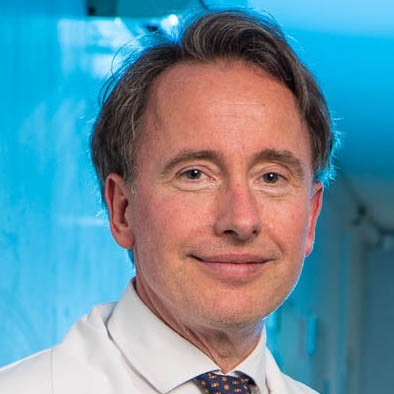
Borut Peterlin
European Society of Human Genetics (ESHG) (Slovenia)
Currently he is the president of European Society for Human Genetics and member of the Board of Member States for European Reference Networks, European Comission.
His main professional and research interests include translation of genomic technologies into health systems and discovering new mechanisms of monogenic and complex disorders.

Petra Verhoef
Theme coordinator research & dialogue on health technologies at Rathenau Instituut (The Netherlands)
Dr. Petra Verhoef (Female) works at the Rathenau Instituut in The Hague, The Netherlands. She coordinates research and societal dialogue in the area of health (care) and medicine, including germline genome editing, reproductive medicine and use of genetic data. With their (participatory) research, her team promotes (national and European) democratic discussion on the impact of various controversial technologies on society, and the governance thereof. Petra Verhoef graduated in Nutrition and Health at Wageningen University (MSc) at 1990 and has a PhD in Epidemiology (1996). After a post-doc year at the Harvard School of Public Health in Boston, she led an 8-year programme on nutrition and healthy ageing at the Top Institute for Food and Nutrition, a consortium of food industry and knowledge institutes in the Netherlands. In 2006 she joined Unilever R&D and spent the next 12 years of her career subsequently as group leader, project leader and coordinator of open innovation partnerships in nutrition and food sciences. Since early 2018, Petra has joined the Rathenau Instituut. Petra’s research experience in academia and food industry is reflected by about 90 peer-reviewed papers in international journals. Other relevant activities: Member of the Committee ‘Early diagnosis in disease’ at ZonMw, The Netherlands Organisation for Health Research and Development.

Eva Winkler
Board of Managing Directors National Center for Tumor Diseases, Heidelberg Head of the Section for Translational Medical Ethics, Heidelberg University Hospital (UKHD) (Germany)
Eva Winkler is an oncologist and Heisenberg Professor and Head of the section for Translational Medical Ethics at the National Center for Tumor Diseases (NCT), University Hospital Heidelberg (UKHD). The Section covers the entire range of ethical questions relating to the translation of research results into healthcare. Professor Winkler is a specialist in haematology/oncology, member of the Board of Directors of NCT and works as a senior physician in the Department of Medical Oncology at the UKHD.
She holds a doctorate in cancer research from the University of Heidelberg/ German Cancer Research Center and a PhD in medical and health ethics from the University of Basel, Switzerland (with distinction). She also did two years of her medical-ethics training as part of two fellowships in the Department of Medical Ethics at Harvard Medical School and as a faculty fellow at the Center for Ethics and the Professions at Harvard University/Kennedy School of Government. The main research areas of her section are: research ethics, clinical ethics and ethical issues in health policy. Eva Winkler is also a scientific director and spokesperson for EURAT (interdisciplinary platform for Ethical and Legal Issues of Genome Sequencing).
PRESENTATION AND OPEN EXCHANGES BY/WITH DESIGNATED YOUNG PEOPLE
Moderators: Murdo Macdonald (CEC/UK), Ingo Härtel (Germany)

Murdo Macdonald
Policy Officer, Church of Scotland Society, Religion and Technology (SRT) Project; Member of the Council of European Churches Technical Reference Group (CEC TRG) on Bioethics, (United Kingdom)
Dr. Murdo Macdonald graduated BSc in Genetics at the University of Glasgow, Scotland, and gained his PhD in molecular biology from the University of St Andrews, Scotland. He spent 20 years involved in postdoctoral research in various institutions. For more than half of that time he was engaged in research on leprosy in a number of countries, including India, Ethiopia and Nepal. His work in this area has been published extensively.
In March 2008 he returned to Scotland to take up the position of Policy Officer with Society, Religion and Technology (SRT) Project of the Church of Scotland, which for more than 50 years has sought to help the church to engage with ethical issues in science and technology. Dr Macdonald has been a member of the Council of European Churches Technical Reference Group (CEC TRG) on Bioethics for a number of years.

Ingo Hartel
Deputy Head, Division for ‘Health Law, Patients’ Rights, Patient Safety’, German Federal Ministry of Health (Germany)
Dr. Ingo Härtel holds a doctorate in medicine from the Charité, Berlin and an MA in bioethics from the Kennedy Institute of Ethics, Georgetown University, Washington, DC. His current position is that of Deputy Head of the Division for ‘Health Law, Patients’ Rights, Patient Safety’ at the German Federal Ministry of Health. Previously, he worked for the office of the Enquete Commission “Law and Ethics in Modern Medicine” at the German Bundestag.
He is the Joint Chair of the Steering Committee for the Global Ministerial Summits on Patient Safety and represents Germany in the Intergovernmental Bioethics Committee (IGBC) of UNESCO and in the Steering Committee for Human Rights in the fields of Biomedicine and Health (CDBIO) where he serves as Rapporteur on Genomics and Genetics.

Radosveta Bozhilova
PhD Student (Bulgaria)
Radosveta Bozhilova is part of the team in Molecular Medicine Center, Department of "Medical Chemistry and Biochemistry", Medical Faculty, Medical University – Sofia. Since 2017, she has been enrolled as a full-time PhD student. Since 2020, he has been carrying out additional research activities as a PhD student under the National Program "Young scientists and postdoctoral fellows".
In 2015, she graduated with a master's degree in "Genetic and cellular engineering" – Sofia University "St. Kliment Ohridski". She received a bachelor's degree in "Molecular Biology" at the Plovdiv University “St. Paisii Hilendarsky”.
Areas of scientific interest:
- genetics and genomics of psychiatric diseases
- epigenetic mechanisms and control of gene expression
- next-generation sequencing in the diagnosis of hereditary diseases
- population genetics
- personalized medicine

Darina Kachakova
PhD, Geneticist at Molecular Medicine Center in Medical University-Sofia (Bulgaria)
Since March 2013 I am geneticist in in Molecular Medicine Center, Department of Medical Chemistry and Biochemistry, Medical Faculty, Medical University – Sofia. At the same Department of Medical Chemistry and Biochemistry became an assistant since 2021 year. I defended PhD thesis in 2015 year on the topic “Molecular profiling of prostate cancer” as a molecular geneticist. I finished my master degree on speciality “Genetics” in 2009 at Sofia University “St. Kliment Ohridski”. In 2007 I obtained a bachelor's degree in "Molecular Biology" in Sofia University "St. Kliment Ohridski".
My main research interests and experience are: next generation sequencing; DNA diagnostics; genetics, genomics and epigenetics of oncological diseases; association studies in prostate cancer; molecular pathology and personalized medicine, diagnostic, prognostic, predictive and pharmacogenetics markers; transcriptomics, expression and epigenetic markers in autoimmune diseases; genetics of deafness.
ORCID record: https://orcid.org/0000-0003-0969-1795
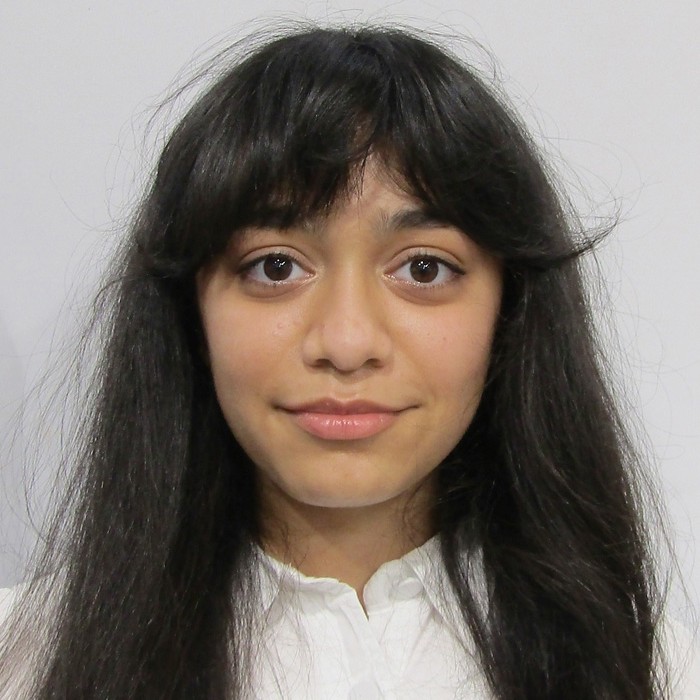
Zoha Panezai
Bioscience student at the University of Limerick (Ireland)
Zoha Panezai is a Bioscience student at the University of Limerick, Ireland. This year she was selected for the Irish Platform for Patient Organisations, Science and Industry (IPPOSI)’s Citizens’ Jury on Future Use of Genomics, considering the increasing extent to which genomics should be used in Ireland in health care and research and how genomics can be best implemented in Ireland. She was offered the opportunity to speak at the Council of Europe’s Online Workshop on Public Dialogue on Genomic Medicine through IPPOSI, representing young people in Europe.
She attended the European Youth Event 2021 last year with Limerick Comhairle na nÓg, an Irish youth council which allows young people to have a voice in services, policies and decision-making that affect them. In 2019, Zoha took part in the National Consultation with Comhairle na nÓg on Relationships and Sexuality Education reviewing the curriculum, as well as attending Dáil na nÓg 2019 in Leinster House.
This year, Zoha was selected for the University of Limerick’s inaugural Science and Engineering Undergraduate Programme of Summer Training and Research Track programme, undertaking laboratory research with Dr Fabiana Andreá Hoffmann Sardá, researching hepatic steatosis and histology scores of mice submitted to high fat diets and new caloric sweeteners (LCS).
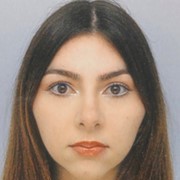
Justine Mace
Student in digital law and apprentice lawyer at the Ministerial Delegation of Digital Health (France)
I am a final year law student in a Master's degree in digital law at the University of Rennes.
During my schooling, I studied a semester in Greece in Thessaloniki during my third year of law. I also did several internships, in prison and in forensic medicine. Every summer I work as a secretary at Rennes hospital, that is where I discovered the health sector and wanted to devote myself to it.
I do my studies on a work-study basis, which means that I am part-time in class and part-time at work in order to learn the legal profession. I work within the Ministerial Delegation for Digital Health (DNS) in Paris. I act as legal support to help project directors, on the protection of personal data among others.

Jimena Pintó
Student at the Swiss School of Barcelona (Spain)
I‘m Jimena Pintó Martin and I‘m a 17-year-old from Barcelona, Spain. My parents are both lawyers, but I’ve always been more interested in science. Apart from this I also like learning languages. I’ve been speaking German since I was very young, because I’ve studied in two German speaking schools: when I was younger, I went to Zürich Schule Barcelona and now I am studying at the Swiss School of Barcelona. I‘m currently working on a research paper on the ethics of human gene editing.
TWO-WAY DIALOGUE WITH ALL STAKEHOLDERS - ARE WE LISTENING AND LEARNING ENOUGH?
Moderators: Mark Bale (UK), Jozef Glasa (Slovakia)

Mark Bale
Genomics policy advisor and UK Delegate to CDBIO (UK)
Independent consultant in genomics, policy and bioethics
Mark Bale has led Government policy at the intersection between research, healthcare, ethics. His work includes legislation on emerging and disruptive technologies, and engaging with public, patients and diverse stakeholders to shape policy and delivery. He has served on several international bodies, including the EU, OECD, WHO, UNESCO, and Council of Europe.
Until March 2022 he was policy advisor and Programme Director for the 100,000 Genomes and seconded to Genomics England. He also acted as Deputy Chief Scientific Advisor to the Department of Health providing policy leadership in regenerative medicine and gene therapy, genome editing, precision medicine and rare diseases. Mark was seconded to lead the UK’s G7 Presidency work on global pathogen surveillance during the COVID-19 pandemic.
Having now left the Civil Service, Mark has several advisory roles in genomic medicine with leading science and ethics bodies. He continues to represent the UK at the Council of Europe Steering Committee on Human Rights and Biomedicine (and was Chair of the predecessor Committee on Bioethics at the Council of Europe from 2014-2016).

Jozef Glasa
Physician and bioethicist, Slovak Medical University, Bratislava
Prof. Jozef Glasa, M.D., PhD., PhD., physician – medical specialist, clinical researcher and university teacher (under- and postgraduate). Teaches clinical pharmacology and therapeutics, hepatology and medical ethics, healthcare ethics, and bioethics at the Slovak Medical University (SMU) in Bratislava. Head of the Department of Clinical Pharmacology, FM SMU. Head, Institute of Health Care Ethics, Faculty of Nursing and Professional Health Studies SMU. Member, SMU Ethics Committee. President, Slovak Society of Clinical Pharmacology of the Slovak Medical Association (SkMA). Former Scientific Secretary, Slovak Society of Hepatology SkMA. 3rd Vice-President, SkMA, Chairman, SkMA Commission on Bioethics. Director, Institute of Medical Ethics and Bioethics n.f., Founding Editor, Medical Ethics & Bioethics. Chairman, Ethics Committee, Ministry of Health, Slovak Republic (MH SR). Member, Committee on Categorization of Medicaments, MH SR. Member, Standing Committee on Regulation and Ethics of Artificial Inteligence, Ministry of Investments, Regional Development and Informatics of the Slovak Republic. Delegate Member for SR in EUREC. Chairman, Accreditation Council of Slovakia for Continuous Medical Education (ACSCME). SkMA Delegate to UEMS and to EACCME. SR Delegate Member, Steering Committee for Human Rights in the Fields of Biomedicine and Health (CDBIO, former DH-BIO, CDBI), Council of Europe. Past Member, European Group on Ethics of Science and New Technologies (EGE), European Commission. Board Member and Ethics Officer, European Forum for Good Clinical Practice (EF GCP). Board Member, European Patients’ Academy for Therapeutic Innovation (EUPATI).
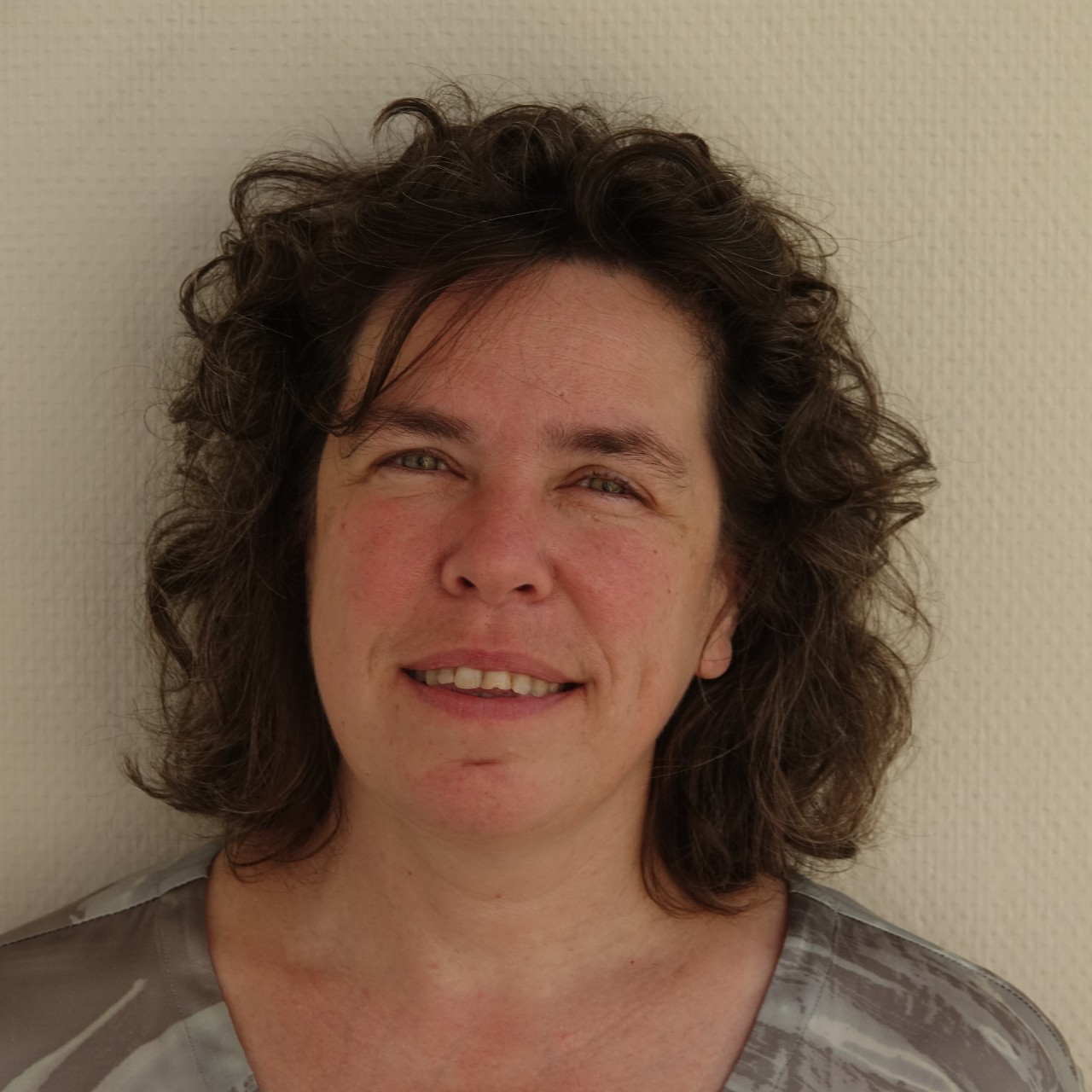
Regina Becker
Research Scientist, European "1+ Million Genomes" Initiative (Luxembourg)
Regina has a PhD in physics but engages mostly in organisational and scientific strategic development as well as in legal subjects around data protection, ethics and research. A major focus of the work is the interdisciplinary integration of legal and scientific aspects of research. Regina pursued a “translational” approach to data protection which aims to interpret the law for scientific research applications. She leads the national efforts on GDPR and public research. In addition, Regina is chairing the ELSI Working Group of the European governmental initiative 1+ Million Genomes and is a member of the Regulatory and Ethics Workstream of GA4GH.

Stefano Benvenuti
Head of Public Affairs at Fondazione Telethon, Italy
Stefano Benvenuti is Head of Public Affairs at Fondazione Telethon (Italy) since 2021. He represents Fondazione Telethon in the International Consortium for Personalized Medicine (ICPerMed) and in the International Rare Diseases Research Consortium (IRDiRC). He co-chairs the ICPerMed Working Group on Health Economic Value of Personalised Medicine Approaches and represents Fondazione Telethon in the Executive Committee of the European Joint Programme on Rare Disease (EJP-RD https://www.ejprarediseases.org/). He has also been appointed by the European Commmission as member of the writing group of the Strategic Research and Innovation Agenda of the forthcoming European Partnership on Rare Diseases.
After graduating in International Cooperation for Development at the University of Bologna in 2007 he started as a consultant project manager of EU funded projects. In 2010 he joined the healthcare department of Regione Veneto working as EU project specialist where he contributed to re-design the regional system of participation in EU funded programs. During this period he also completed a master degree in Health Technology Assessment at Università Cattolica in Rome.
Being an experienced manager of EU funded project and an expert of EU research policy, he joined Fondazione Telethon in 2016 to set-up the EU affairs office and coordinate the participation of Fondazione Telethon in European and International initiatives. In 2018 he took the role of Global Partnership Manager.
At Fondazione Telethon he currently coordinates also the project “Sequencing of newborn genome: feasibility and clinical, ethical, psychological and economic implications” co-funded by the Lombardy Region.

Nicolas Garnier
Head of Patient Advocacy, Pfizer Global Product Development, Oncology & Rare Disease (Industry)
Patient advocacy and disease awareness are life-long passions for Dr Nicolas Garnier.
Nicolas is a scientist by training and a published author. He completed his Master’s degree in cancer Genetics at Denis Diderot University (Paris, France), before completing his PhD degree in Experimental Medicine at McGill University (Montreal, Canada) in 2013.
He then studied the functional genomics of pediatric leukemia at Sainte-Justine Hospital (Montreal, Canada) as a Postdoctoral Fellow before joining Pfizer Canada Medical Affairs in 2015. He then took on the role of Senior Manager Access for Pfizer Canada Rare Disease, where he was responsible for Market Access, HEOR, as well as Policy.
He has built strong relationships with Patient Groups in the Rare Disease and the Oncology space.
In his current role as Head of Patient Advocacy, Oncology & Rare Disease, Global Product Development, Nicolas helps Pfizer clinical teams integrate the unique expertise of patients, caregivers and advocates to design and conduct development programs that positively impact the lives of patients.
Nicolas is also leading the SCREEN4CARE public-private IMI consortium on behalf of EFPIA and hopes to address one of the major hurdles for Rare Disease families: the diagnosis journey.

Andres Metspalu
Head of the Estonian Biobank, Professor of Biotechnology, Professor of > Genomics and Biobanking, Institute of Genomics, University of Tartu
Prof. Andres Metspalu, (MD 1976, PhD 1979) Head of the Estonian Biobank, Institute of Genomics, University of Tartu. He was a postdoc at Colombia (1981) and Yale University (1982), 1985 EMBL as a FEBS fellow and 1987 MPI West Berlin as EMBO fellow. His main scientific interests are human genetics, genomics of complex diseases and population-based biobanks and application of the precision medicine in health care. He was in 1993 -1994 at BCM, Houston, as a visiting faculty, in year 2000 at IARC, Lyon, France as a recipient of the International VSS Award and in 2012 sabbatical at University of Lausanne working on human genetics and genomics. From 1996 to 2008 A. Metspalu was also the head and founder of the MolD Center of the Tartu University Hospital. Metspalu is the past (2006) president of the European Society of the Human Genetics. 2010 he was elected to the Estonian Academy of Sciences. He is serving in several national and international committees (Board member of Mission for Cancer in Horizon Europe (until Dec.2021, EU 1 Million Genome, (member of the coordination group), SAB member in EATRIS and EIT Health Stockholm) and has received among other awards and honors the Order of the Estonian Red Cross 3rd Class and L’Ordre des Palmes Academiques from the Republic of France. From 2010, he is Doctor Honoris Causa of Vilnius University.
WHAT LEVEL OF PUBLIC INVOLVEMENT AND/OR OVERSIGHT ARE NEEDED FOR DEVELOPMENT, GOVERNANCE AND REGULATION OF GENOMIC MEDICINE?
Moderators: Mélodie Bernaux (France), Aime Keis (Estonia)

Mélodie Bernaux
eHealth delegation, Ministry of Health (France)
Mélodie Bernaux, M.D., MPH, MSc has been a member of the Committee on Bioethics (DH-BIO) since 2020.
She recently joined the eHealth delegation of the French ministry of Health to implement ethics of digital health at the national and European level.
In her previous work as medical lead for Human reproduction, embryology and genetics at the Directorate General for Health, she conducted the 2021 revision and application of the French bioethics laws for all aspects related to medically assisted reproduction (MAR), genetics, artificial intelligence ( AI) implementation in healthcare and medical management of intersex children.
As an active member of the Committee, she chairs the working group on public dialogue in genomic medicine.

Aime Keis
Vicechair, National Committee on Bioethics and Human Research Lecturer in medical reasearch University of Tartu (Estonia)
Aime Keis studied in medical faculties University of Tartu. She worked in Estonian Genome Project in between 2007-2010. She becomes a lecturer in medical ethics in 2011. Aime Keis is a member of the Research Ethics Committee of the University of Tartu. She holds chairperson position in RECUT. She is a member and vicechair in Estonian National Committee on Bioethics and human reasearch.
Source https://ut.ee/en/node/113848

Philippe Berta
Professeur de génétique moléculaire, député du Gard et Président groupe d'études maladies rares

Sandra Liede
Senior Legal Specialist Healthtech Finland, part of TIF (Technology Industries Finland)

Katherine Littler
Co-Unit Head of the Global Health Ethics & Governance Unit, WHO
Katherine Littler is currently the co-Unit Head of the Global Health Ethics & Governance Unit at WHO Headquarters, Geneva. She is passionate about embedding ethics more effectively in global health ethics decision making and increasing ethics capacity around the globe. Whilst a lot of her current focus is on COVID-related work, she is also focused on realizing the potential benefits of emerging technologies in different settings; research ethics, with particular reference to priority setting, ethics oversight and governance and clinical trial design; and climate change, health, equity and ethics.
Prior to joining WHO in October 2018, Katherine co-led the Global Policy Team at Wellcome, where she provided strategic advice on regulatory, governance and ethical issues.

Alessandra Pierucci
Chair of the Consultative Committee of Convention 108
Alessandra Pierucci is a lawyer and has been working for several years at the Italian Data Protection Authority, in particular on EU-related and international matters.
Since 2016 she is Chair of the Council of Europe Consultative Committee of Convention 108 in which she has been actively involved for many years by representing Italy.
She worked at the “Media and Information Society Division” of the Council of Europe where she dealt with data protection and freedom of expression in respect of new media and Information Society, and gender equality in the media.
At European Union level, she contributes regularly to the activity of the European Data Protection Board, in particular by coordinating the work of subgroup on data protection in the financial sector.
She participated in several projects on data protection and gave legal advice in the field.
As part of her research activity, she has published several papers concerning fundamental rights and data protection issues on juridical journals and books. She has taught data protection in post graduate courses in some European universities.

Stefan Schennach
Committee on Culture, Science, Education and Media, Parliamentary Assembly of the Council of Europe
- Member of the Federal Chamber, Parliament, Austria
- Member of the Council of Europe
- Chair of the Committee for Future, Innovation and Science (in Austria) and vice-chair of the Committee for European questions
- Chair of the Committee for Social, Health and Sustainable Development
- Former chair of the Committee for Conflicts between Member States of the Council of Europe and the Monitoring Committee
- Co-Rapporteur for Azerbaijan
- 8 years Chair of the Committee for Energy, Environment and Water of the Union for the Mediterranean
- Member of COSAC
- Many times head of observation mission in Macedonia
- Rapporteur for dirty money and money laundry, youth in detention, illegal trafficking of cultural heritage
- Head of fact finding mission in Jordan valley regarding water for Syrian refugees in Turkey and Jordan, special visit about the situation in prisons in Moldova
- Author of books
- Director of Austria Barocq Academie
CONCLUDING REMARKS AND NEXT STEPS

Mark Bale
Genomics policy advisor and UK Delegate to CDBIO (UK)
Independent consultant in genomics, policy and bioethics
Mark Bale has led Government policy at the intersection between research, healthcare, ethics. His work includes legislation on emerging and disruptive technologies, and engaging with public, patients and diverse stakeholders to shape policy and delivery. He has served on several international bodies, including the EU, OECD, WHO, UNESCO, and Council of Europe.
Until March 2022 he was policy advisor and Programme Director for the 100,000 Genomes and seconded to Genomics England. He also acted as Deputy Chief Scientific Advisor to the Department of Health providing policy leadership in regenerative medicine and gene therapy, genome editing, precision medicine and rare diseases. Mark was seconded to lead the UK’s G7 Presidency work on global pathogen surveillance during the COVID-19 pandemic.
Having now left the Civil Service, Mark has several advisory roles in genomic medicine with leading science and ethics bodies. He continues to represent the UK at the Council of Europe Steering Committee on Human Rights and Biomedicine (and was Chair of the predecessor Committee on Bioethics at the Council of Europe from 2014-2016).



